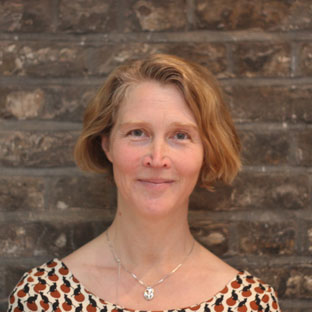Last week I attended an excellent Westminster Education Forum Seminar on school-to-school improvement partnerships, which managed to squeeze 17 speakers into a single morning. In the same spirit of brevity I am sharing my top tips from the morning in tweet-sized chunks. They are:
Collaborations don’t have to do everything – be clear about their purpose – this from David Crossley, Executive Director of Whole Education (an organisation that has its roots in the RSA). It is all too easy to see partnership or collaboration as an end in itself, rather than as a means to an end. Within RSA Academies one of our four strategic priorities is, “to improve teaching and learning through purposeful partnership”. As schools within the Family work increasingly collaboratively we will need to ensure that the focus on improving teaching and learning remains central.
Professor Merryn Hutchings from the Institute for Policy Studies in Education had directed the evaluation of the City Challenge programme in London, Greater Manchester and the Black Country. A key message from that review was that Weaker schools benefit from a single partnership; stronger schools benefit from multiple partnerships. This too is very relevant for the RSA Family of Academies, which includes both highly performing schools and those in need of support. Schools within the Family should have the opportunity to benefit from all aspects of the relationship with other schools and with the RSA. Nevertheless, there is a growing understanding that the focus of this is likely to be different for a struggling school which is looking principally for school improvement support, than for a good or outstanding school with more capacity to engage in a wider range of developmental activities.
Brian Lightman, General Secretary of ASCL, argued that Partnership works best when it is based on a relationship of equals. RSA Academies certainly would not disagree with this as a principle. Indeed our school improvement model explicitly recognises that “all schools, irrespective of Ofsted category, have both strengths and areas for development and will therefore be both offering and receiving support and advice from other schools.”
There are, however, aspects of the current Academies set-up nationally that mitigate against this equal partnership in practice, most notably that multi-academy trusts (MATs) are required to have a single accounting officer with ultimate responsibility for key issues across all schools in the group. This probably isn’t a problem where a strongly performing school partners a weaker school, and where the head of the stronger school will take on this role. Nor is it an issue for medium to large MATs, which can afford to take on a Chief Executive. But, as Anne Jackson, Director of System Reform at DFE pointed out, for all the publicity around the big Academy chains, a typical Academy chains now comprises 4 or 5 schools. Perhaps unsurprisingly, DFE are keen to encourage more of these small chains, particularly in the primary sector. Schools coming together to form a MAT as equals will either need to choose one of the Headteachers as the accounting officer, and therefore the person with ultimate responsibility for the group, or commit resource to creating a new post of Chief Executive. In many cases neither option will be attractive, and this may be one reason why the significant financial incentives to primary schools to form academy chains have so far had a limited effect.
Howard Lay, Executive Principal of the Samuel Ward Academy began his slot by talking very positively about the RSA’s work in Suffolk which resulted in the No School an Island report. His analysis of the last few years, in Suffolk and nationally, was that Schools have been on a journey from dependence to independence, and are now moving to the next stage: interdependence. This chimed very closely with the feedback I am getting from conversations with schools and local authorities about the possibility of new schools joining the RSA Family. The first tranche of Academy convertors generally did so alone, and in the early years the new independence (as well as the financial incentives) was a big part of the attraction of Academy status. More recently there has been a change in tack, with some of the schools that originally converted independently now looking to form partnerships and allegiances with other schools, and those that are considering Academy status for the first time more interested in converting in partnership with other schools. The RSA’s Academies Commission stressed that in an increasingly academised system it would be particularly important for schools to be connected to one another to accelerate school improvement. Mr Lay’s upbeat analysis, which reflected the mood of the morning , is that more and more schools are looking to offer and receive school improvement support from other schools, and school interdependence is becoming an increasing feature of our education system.
Alison Critchley is Chief Executive of RSA Academies, a charitable company that currently works with four schools in the West Midlands. Follow me @Ali_Critchley

Be the first to write a comment
Comments
Please login to post a comment or reply
Don't have an account? Click here to register.